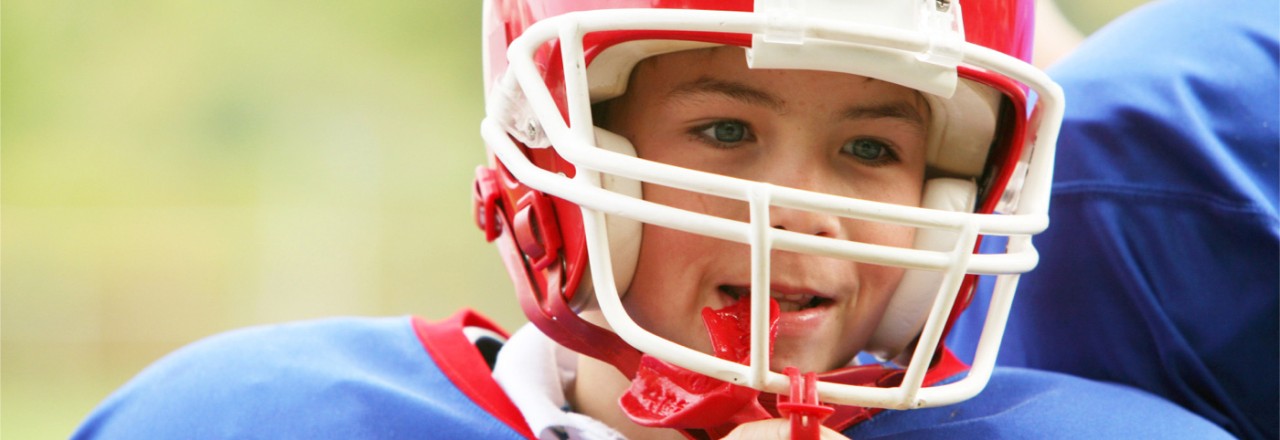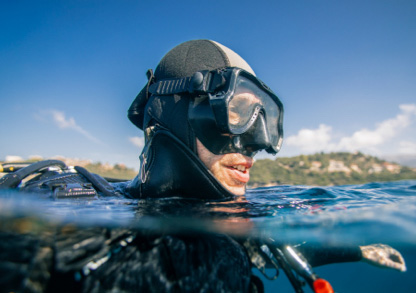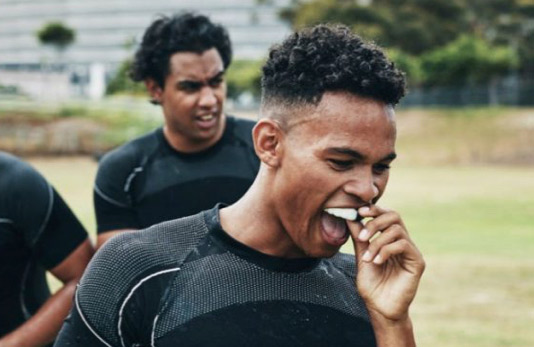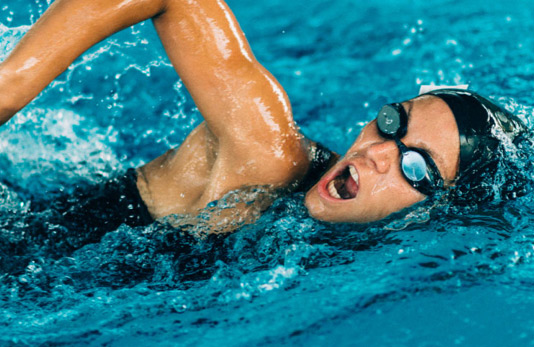Avoid dental injuries during summer sports

Summer is the time for enjoying the great outdoors. However, some popular summer sports — such as swimming and softball — can expose your teeth to danger. Here are several seasonal activities that could lead to dental injuries and ways to keep your smile safe.
Swimming
Frequent swimmers may be at risk for developing yellowish-brown or dark brown stains on their teeth.
Those who swim more than six hours a week continually expose their teeth to chemically treated water. Pool water contains chemical additives, which give the water a higher pH than saliva. As a result, salivary proteins break down quickly and form organic deposits on teeth. These hard, brown deposits, known as swimmers' calculus, appear most frequently on the front teeth.
Swimmers' calculus can normally be removed by a professional dental cleaning.
Scuba diving
Scuba diving can lead to jaw joint pain, gum tissue problems or "tooth squeeze" — pain in the center of the tooth.
These symptoms add up to what's called "diver's mouth syndrome" (also called barodontalgia), a condition caused by the air pressure change involved in scuba diving and by divers biting too hard on their scuba air regulators. Tooth squeeze is caused by the change in air pressure, particularly if a diver has a big cavity, a temporary filling, gum disease, periodontal abscess or incomplete root canal treatment.
The best way to avoid these problems is to visit your dentist before scuba diving and make sure your dental health is tip-top. Ask your dentist's advice about fitting the mouthpiece of an air regulator. Sometimes you can inadvertently swallow dentures during a dive, so if you wear dentures, consult your dentist before diving to discuss any potential problems.

Contact sports (soccer, softball, basketball, etc.)
Soccer players are more likely than football players to sustain a dental-related injury — and these statistics don’t include pick-up games with your friends!
Soccer is a sport where mouthguards and face masks are not mandatory, upping your odds for mouth and face injuries. Softball, basketball and pick-up games of touch football involve similar risks. In addition to causing injuries during contact, these sports also may be costly if you’ve had extensive dental work or wear braces.
When participating in such sports, a mouthguard is your best ally. The AGD estimates that mouthguards prevent more than 200,000 injuries each year. Using a mouthguard can prevent damage to braces or other orthodontic work, as well as prevent mouth cuts, jaw injuries and tooth damage.
Types of mouthguards
There are several types of mouthguards. Ask your dentist for advice about which mouthguard solution is best for you.
- Stock mouthguard. The lowest cost option is an item that can be bought "off the shelf" from a drug or sporting goods store. This type of mouthguard offers the least protection because the fit adjustment is limited. While better than nothing, a stock mouthguard is not considered acceptable as a facial protective device.
- Mouth-formed protectors. These mouthguards come as a shell-liner and "boil-and-bite" product from sporting goods stores. The shell is lined with acrylic or rubber. When placed in an athlete's mouth, the protector's lining material molds to the teeth and is allowed to set.
- Custom-made mouth protectors. The best choice is a customized mouthguard made by your dentist. This is the most expensive option (and may not be covered by your dental plan — check your plan details), but a custom mouthguard offers the best protection, fit and comfort level, because it’s made from a cast to fit your teeth.
Last updated March 20, 2022
Related articles:
The oral health information on this website is intended for educational purposes only. Always consult a licensed dentist or other qualified health care professional for any questions concerning your oral health.


